You don’t sleep the whole night through
We all know that we’re supposed to get eight hours of sleep on a daily basis, but inevitably this is sometimes interrupted, perhaps by noises outside or the sudden need to use the bathroom. However, if you’re waking up in the early hours on a regular basis, never getting a full uninterrupted night’s sleep, this is a cause for concern.
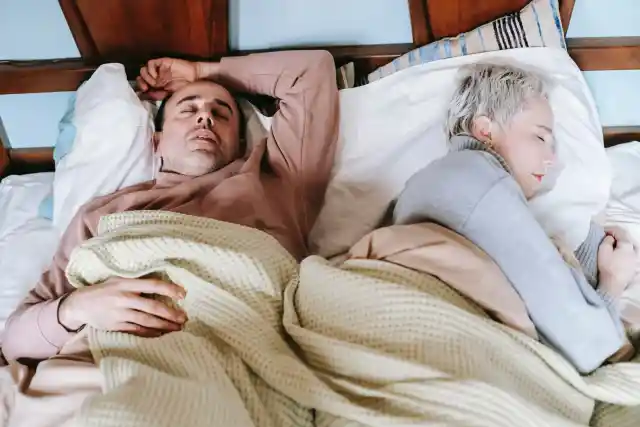
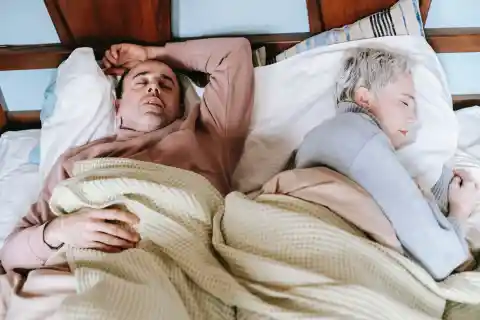
It’s hard to go back to sleep when you wake in the night
Waking up in the night is one thing, but for many of us it’s not too difficult to put your head back down and nod off again quickly. However, if once you wake unexpectedly it takes you longer than 20 minutes to get back to sleep – or worse yet, you’re not able to get back to sleep at all – then you may have a problem.


Your stress levels are soaring
If you haven’t been sleeping well, and you also find yourself struggling emotionally during the day, guess what: the two things are almost certainly connected. Increased stress and anxiety, and an inability to keep your anger and/or tears in check, may well be indicators that you are in dire need of an improved sleep schedule.
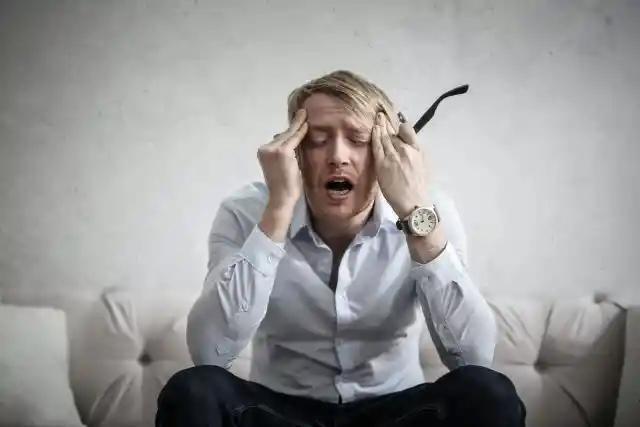

You have major sugar and junk food cravings
Another clear indicator of sleep deprivation is an increased appetite, especially if you’re craving all that stuff we know we shouldn’t be having too much of. Processed sugar and junk food can prove addictive for those of us burning the candle at both ends, as they give us a quick boost of energy – but they can also result in devastating energy crashes, and insomnia.


You’re over-reliant on caffeine
Hand-in-hand with sugar and junk food, caffeine is that other major vice of the sleep-deprived. The caffeine from one cup of coffee may take 10 hours or more to leave your system, so if you’re drinking multiple cups into the afternoon, it’s pretty much certain to keep you up at night. Cutting out the caffeine by midday or early afternoon should help improve things.


Your skin is bad
As much as we like to think of acne as an exclusively adolescent concern, the fact is that it can still affect us at any age – and if you’re suffering from outbreaks in adulthood, this may be a sign that you’re not sleeping enough. Outbreaks of zits are directly related to the hormones associated with stress, and less sleep inevitably leads to increased stress.


Your concentration is poor
When the pressure’s on in your job or your studies, many of us think we need to pull an all-nighter, deliberately missing out on sleep to concentrate on getting our work done. This, however, is a mistake. If you’re not sleeping enough, this will have a detrimental effect on your concentration levels, and it’s unlikely you’ll be working to the same standard you would otherwise.


Your eyes are puffy or have circles
One of the oldest tell-tale signs of lack of sleep is bags, dark circles or puffiness around the eyes. Sleep deprivation leads to a decrease in our collagen levels, meaning our skin will lose some of its natural elasticity. Along with this, there may be an increase in fluid build up under the eyes, which results in bags or circles.
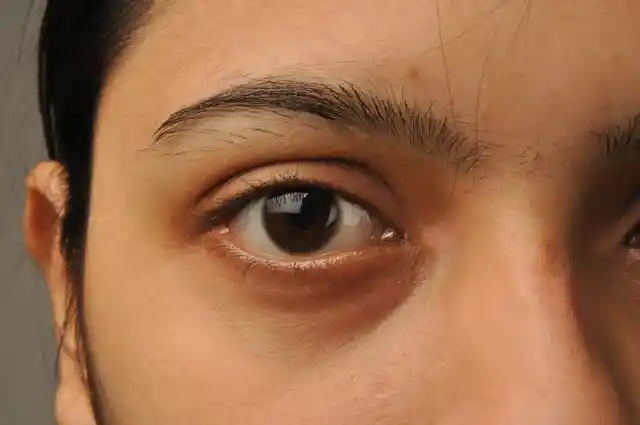
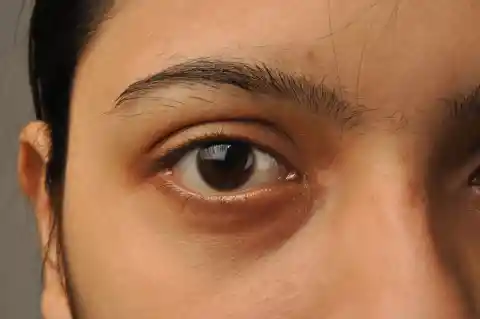
You spend a lot of your time in bed still awake
This might seem strange, but if you’re spending too much time on your bed when it’s not bedtime, this may adversely affect your sleep. If you sit or lie on your bed whilst eating, watching TV, using your laptop or phone, subconsciously you will no longer associate the bed specifically with sleep. Hanging out somewhere else, like your living room, can help overcome this.


You wake with a bad back and/or neck
A clear sign of a bad night’s sleep is waking up with stiffness and pain in your neck and/or back. If discomfort in these areas is part of what’s making it hard to sleep at night, it may well be that you’re not sleeping in the right position, or you might even be in need of a new, better quality mattress and pillow.
You forget why you walked into a room
If you find yourself wandering into the kitchen and standing confused in front of the fridge because you don't know what you're looking for, it could be because you're not getting enough sleep. Even one night of poor sleep hygiene can cause a decrease in your short-term memory, leading to "blanking", poor recall, and confusion.


Your long-term memory is poor
While one night of not enough sleep can hugely impact your short-term memory, poor sleep hygiene over a longer period of time can seriously mess with your long-term memory. If you struggle to recall memories that you used to cherish, or you forget random facts like how many days are in each month, you could be seeing the effects of a bad sleep schedule.


You have dramatic mood swings
Mood swings can be caused by a wide variety of factors, from menopause or hormonal imbalance to mental illness or certain medications. With that said, missing out on a good night's sleep can also cause your emotional regulation skills to slip, causing your feelings to go haywire. If you go from feeling desolate to furious to manic in the space of minutes, you need some shut-eye.


You always seem to have a cold
At first glance, it might seem like there's no connection between being constantly tired and always getting sick. Unfortunately, though, the two things create a vicious cycle. Missing out on sleep lowers your immune response and allows your body to easily be colonised by germs and pathogens, and being sick makes you feel more exhausted than ever.


You have high blood pressure
If you've been to the doctor and been told that your blood pressure is higher than it should be, but you can find nothing in your medical history, diet or exercise strategies to explain it, you might be looking in all the wrong places. Poor sleep quality can lead to an uptick in blood pressure over time.


You're pre-diabetic
Poor sleep quality can increase your risk of developing diabetes for numerous reasons. Not only can suboptimal sleep lead you to crave sugar and refined carbohydrates, but it can also cause weight gain, insulin resistance and a scrambling of your hunger cues. Cumulatively, this makes it harder to manage symptoms if you are diabetic and makes you more likely to get the disease if you're not.
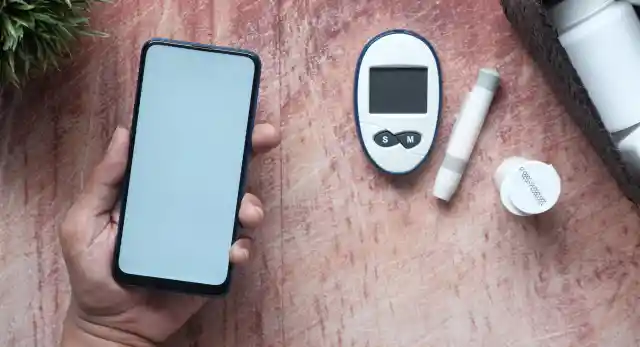

You have terrible balance
Not everyone is naturally great at balancing, but one thing is universal: no matter whether you find it easy or hard, your balancing skills will rapidly deteriorate after a night of poor sleep. So if you've started noticing that half the positions in your yoga class lead you to crumple into a heap, it could be because you need to reevaluate your sleep hygiene.


You're not very coordinated
If you've ever stayed up all night to study for an exam, only to bang your hip on your desk, trip over your chair leg and smack into a glass door on your way out, you'll know that even one night of poor sleep can massively affect your coordination. That means that if you deal with clumsiness on the regular, it might just be your sleep schedule.


You have diminished libido
Lots of things can affect your enthusiasm for bedroom activities, from certain medications to work stress to even things like vitamin deficiencies. With that said, one of the most common causes of diminished libido is poor sleep hygiene, because bad sleep interrupts your body's testosterone, which is in turn responsible for arousal.
You make a lot of impulse purchases
Most people will be familiar with this scenario: you accidentally stay up too late studying or watching TV, and suddenly you hear the siren call of online shopping. You then wake up the next day with no idea why you ordered so many pieces of random junk. A poor sleep schedule affects your body's hormone production, and so you may seek quick hits of dopamine via impulse purchases.


You feel hungry all the time
If you've ever had a big deadline at work and had to stay late at the office, you'll probably remember coming home absolutely ravenous. As it turns out, skipping sleep either intentionally or by accident interrupts your hunger cues, leaving you to feel completely out-of-wack levels of hunger. So if you're constantly peckish, it's worth checking if you're getting enough shut-eye.


You crave snacks late at night
Nothing beats the bliss of a late-night pizza or a bag of gummy worms eaten in bed, but infuriatingly, all the mums in the world are right. Eating just before bed can absolutely destroy your sleep hygiene and make you feel more tired the next day, with the cruel irony being that bad sleep will only make you feel hungrier the next evening.


You struggle to build muscle
Most of your body's repair processes happen at night as you rest, so it makes sense that missing out on a good night's slumber will make it harder for you to build muscle. As you sleep, your body fixes broken muscle fibres, so if you're eating masses of protein and still struggling to build mass, it's worth asking if your sleep hygiene is poor.


Your growth is stunted
Growth is another thing that mostly occurs in your sleep, as it is a process activated by hormones released at night. That means that if you miss out on enough nights of quality sleep as a child, you can permanently stunt your growth. Even as an adult, if you're not growing the way your doctor projected, it could be because your slumber is messed up.
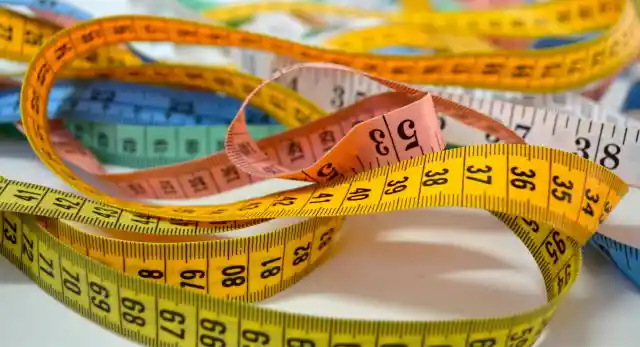
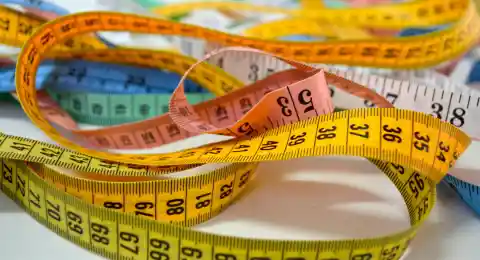
You nap during the day
If you have a habit of getting low-quality sleep, you'll know the overwhelming urge to nap during the day after a night of tossing and turning. Unfortunately, this only makes things worse in the long run, as napping for too long or at the wrong times can ruin the next night of sleep ahead of you.


You use your phone in bed constantly
Many people fall asleep by watching YouTube videos on their laptops, reading on a bright iPad or scrolling through TikToks on their phones. As tempting as this might be though, inundating your eyes with blue light just before bed can seriously mess with your circadian rhythm, ruining your sleep. So if you can't nod off without your cooking videos but feel constantly groggy, this might be why.
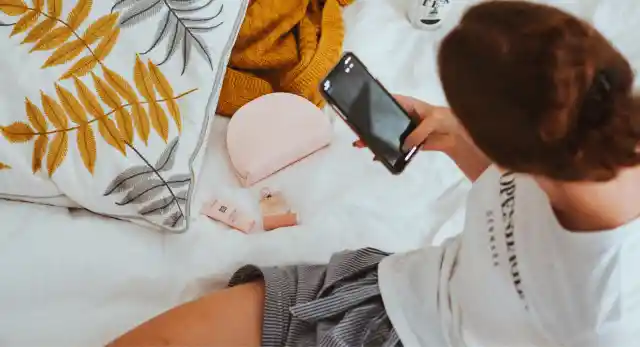

You exercise right before bed
Exercising is a crucial part of maintaining both physical and mental health, and regular workouts can even aid in sleep. However, exercising too close to bedtime can spike your cortisol levels and lead to you being unable to sleep. So if you have a habit of late night pilates or after-work runs, it could explain why you struggle to sleep through the night.


You feel dissociated or disconnected
One of the most troubling side-effects of not getting enough sleep is what it can do to your mental state. Even just one night of no sleep can lead to feelings of dissociation, disconnection and paranoia. If you experience feeling like you're in a dream or like your surroundings or yourself aren't real, it could be because you're desperately in need of shut-eye.


You hear noises that aren't there
Auditory hallucinations might seem dramatic, but they're actually fairly common. Hearing sounds that aren't there can occur after just one or two nights of sleep deprivation, with their complexity and frequency increasing the longer you go without slumber. So if you've been hearing whispers or vague sounds that are seemingly without origin, it might be that something is disturbing your sleep quality.


You feel nauseous
One lesser-known side-effect of not paying attention to your sleep schedule and hygiene is nausea. If you consistently prioritise other things over getting good quality sleep, you may find that you feel sick and unable to eat during the mornings, and are intermittently hit with waves of queasiness throughout the day, due to imbalanced cortisol levels.


You see dark figures in the corners of rooms
Auditory hallucinations aren't the only kind of disturbances you may experience after a couple of nights of skipped sleep. Visual hallucinations are also a common side effect, most frequently manifesting as shadowy figures that blink in and out of existence, dark shapes that move in corners, and occasionally walls and floors that seem to flex and wobble.


You're constantly tripping over
Everyone has the odd moment of tripping over the edge of a sidewalk for no reason, or catching their foot on nothing in particular and going sprawling anyway. With that said, if falling over is a daily occurrence for you and there is no medical or practical explanation, it could be because you're not getting the right amount or quality of sleep.


You can't stop gaining weight
Weight gain is an incredibly complicated process that can be affected by all sorts of things, from your diet and exercise regimen to chronic illnesses and genetic components. Poor sleep can also increase the rate at which your body gains weight, as it throws your body's production of ghrelin and leptin.
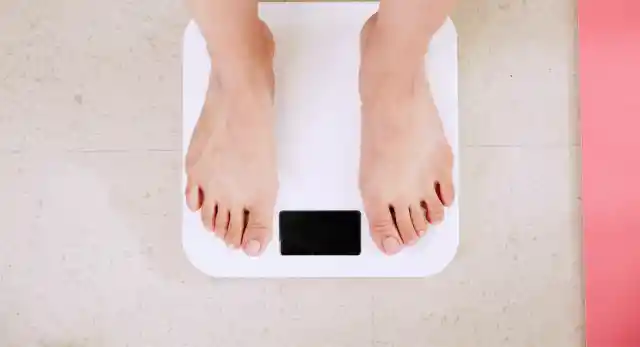
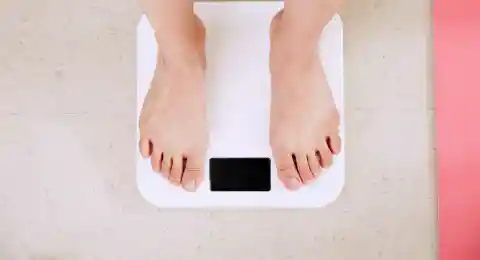
You experience regular diarrhoea and gas
If you experience regular and unpleasant gut and stomach problems in the morning, you might put it down to early starts or too much black coffee on an empty stomach. In actuality though, it's far more likely to be down to poor sleep hygiene, which has been shown to cause things like gas and loose stools if not corrected.


You drop things constantly
Dropping things is another side-effect of sleeplessness that isn't spoken about often. Fine motor skills and coordination are two things that the brain diverts energy away from in the wake of a sleepless night, in order to keep other more essential functions running. As a result, the day after an all-night TV binge or study session is particular dangerous for your phone and coffee cup.


Your stomach always hurts
Consistently poor sleep can have a myriad of effects on your body, and not all of them make logical sense at first glance. One of the weirdest correlations is that inadequate sleep hygiene can lead to abdominal cramping and even pain. Scientists think this has something to do with sleep deprivation slowing the metabolism and affecting digestion and gut flora.
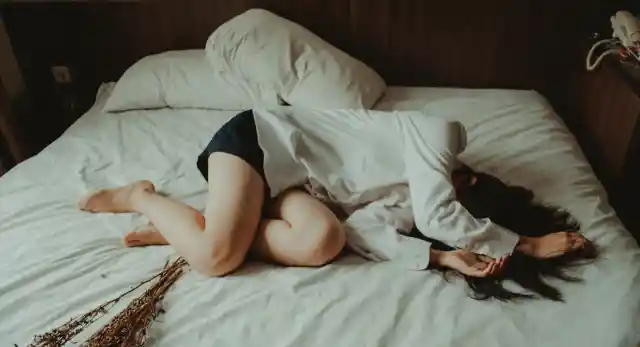

You're indecisive
One of the first things most dramatically affected by a rough night's sleep is your decision-making capabilities. So you may find that, after a particularly restless night, you find it difficult to choose between different options and courses of action. This is partly why it's so hard to choose what to have for breakfast after a night of heavy drinking.


You experience double vision
Most people think of eyesight as a pretty static thing, but the truth is that it can vary enormously depending on how well-rested you are. If your sleep is broken or low quality for a couple of nights, its easy for you to lose control of the muscles around your eyes, leading to misalignment and double vision.
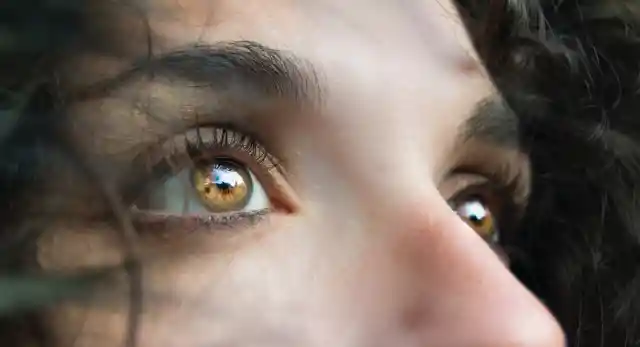
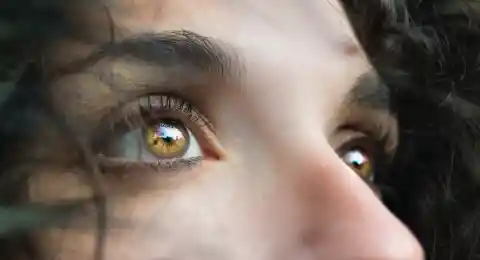
Your skin is dry and uneven
The age-old adage about needing "beauty sleep" to stay young and vibrant is actually more factual than you might expect. Studies have consistently shown that those who do not sleep enough develop dry and uneven skin more often, as well as experiencing higher rates of premature ageing. So get those 40 winks!


You have kidney problems
While one night of rough sleep is unlikely to impact your kidney health all on its own, consistently poor sleep hygiene or deprivation can have a disastrous effect on your organs. Not sleeping enough or having broken sleep can increase your risk of kidney disease over time, so it's worth spending time developing a healthy sleep schedule that works for you.

